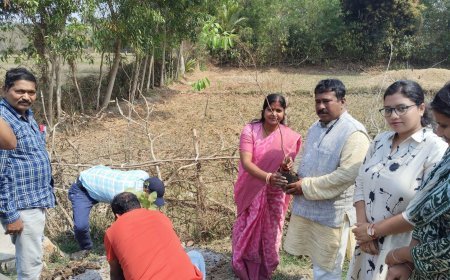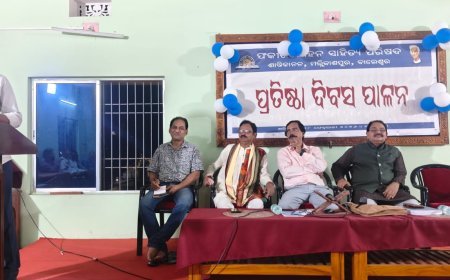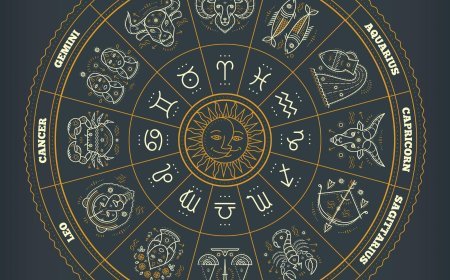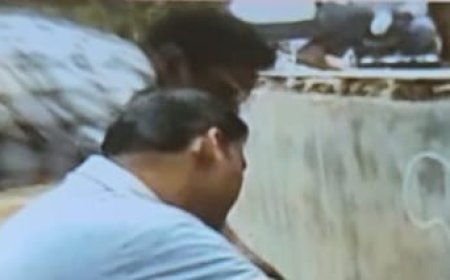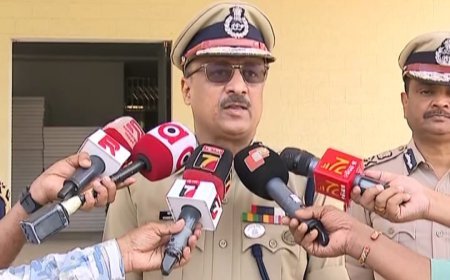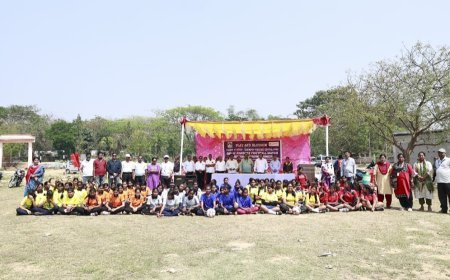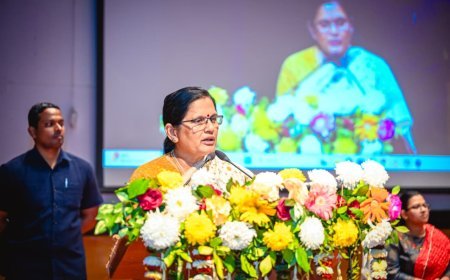"Kuntala Kumari Sabat: A Timeless Luminary in Literature and Medicine"
Tribute

Sanjay Bhatt
On the auspicious occasion of the 125th birth anniversary of the immortal literary figure, the revered Kuntala Kumari Sabat, we pay our deepest respects to her everlasting legacy.
Born on 8th February 1901 in the Jagdalpur village of the Bastar region (now in Chhattisgarh), Kuntala Kumari Sabat was a beacon of wisdom and an indomitable force in literature and social reform. Her father, Daniel Sabat, was a doctor by profession, and her mother, Monika Sabat, was a woman of great strength and determination. Her ancestral roots traced back to Dandamukundapur in Puri district, Odisha. Due to certain circumstances, her father moved to Bastar and converted to Christianity. Shortly after Kuntala’s birth, the family relocated to Burma (Myanmar), where she spent her childhood until the age of 14. However, following her father’s remarriage, she returned to Odisha with her mother, residing briefly in Khordha.
Kuntala pursued her education at Ravenshaw Girls' School before enrolling at Cuttack Medical School (now SCB Medical College) for her medical studies. In 1921, she graduated with an L.M.P. (Licentiate in Medical Practice) degree, securing a gold medal—a remarkable feat for a woman in an era when female education was a rarity. Her education was made possible due to her mother's unwavering determination. Besides Odia, Kuntala was proficient in Bengali, English, and Burmese, showcasing her linguistic prowess.
A Pioneering Career in Medicine and Social Reform
Following her medical degree, Dr. Kuntala Kumari Sabat served as a physician in Cuttack under Dr. Kailash Chandra Rao from 1921 to 1928. She later established her own medical practice in the city. In 1925, she was appointed as a health inspector for the women’s wing of the Red Cross Society.
In 1928, she moved to Delhi, where she embraced Brahmoism with the hope of marrying Dr. Kailash Chandra Rao, but fate intervened, preventing their union. Later, she adopted Arya Samaj beliefs and married Krishna Prasad Das, a Brahmachari, on 8th August 1928. Together, they had two sons and two daughters.
Kuntala was an ardent advocate against caste discrimination and an unwavering voice for women's empowerment. She fiercely opposed child marriage, purdah (veil) system, and gender-based oppression while advocating for widow remarriage and female education.
A Literary Icon and Freedom Fighter
Beyond her contributions to medicine and social work, Kuntala was a gifted poet and writer. Her verses echoed the spirit of nationalism and social justice. She passionately penned revolutionary poetry, stirring patriotism and advocating for societal reforms. Her works were published in both Odia and Hindi, and she was a prominent contributor to Mahaveer, Jeevan, and Nari Bharati—renowned Hindi journals.
She was often compared to Sarojini Naidu, reflecting her influence in the literary and political spheres. Recognizing her contributions, the Mahila Bandhu Samiti honoured her with the title "Utkal Bharati" in 1925. Her literary works were widely translated into English and other Indian languages, ensuring her impact extended beyond Odisha.
Kuntala was also invited as a guest speaker at the convocation ceremonies of Banaras Hindu University and Allahabad University, a testament to her intellectual prowess. Committed to the upliftment of Odia literature, she established the Bharati Tapovan Sangha in Delhi to promote the Odia language.
Despite her unparalleled contributions to society, literature, and medicine, her life was tragically cut short. On 23rd August 1938, at the young age of 37, she passed away, leaving behind a legacy that continues to inspire generations.
Her poignant verses, filled with deep emotions and a vision for a just world, remain etched in the hearts of literature enthusiasts:
"Ah! How pure is childhood, free from sorrow and pain,
A life bathed in nectar, untouched by worldly disdain.
Like the dawn—so tranquil, so bright,
In this new life, there is no burden to fight."
—Kuntala Kumari Sabat
Her words, her deeds, and her unwavering spirit of resilience and reform make Kuntala Kumari Sabat an eternal source of inspiration for all.










